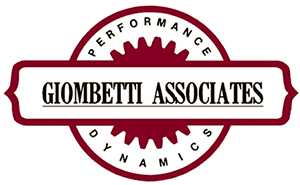By Shana Hendrikse, Ross Giombetti, Bobby O’Neil and Kathy Vivier
“Research shows that trust is a critical driver of engagement. Trusting employees are 260% more motivated to work, have 41% lower rates of absenteeism, and are 50% less likely to look for another job. But consider this: We also found that roughly one in four workers don’t trust their employer.” —MIT Sloan Management Review

Trust is a measure of the strength and stability of one person’s confidence in another. It is also a state of being wherein a person feels safe to be completely honest and transparent in their communication. Given the complexities of human behavior and social systems, it is a tall order to achieve such a state 100% of the time. However, there are steps we can take, perspectives we can change and behaviors we can avoid if we wish to cultivate a culture of safety, transparency and accountability, and foster trust within an organization.
Trust by Any Other Name
It’s imperative to remember that people come to the organization with their own premade definitions of trust. These have been well established by their experiences, unique ways of thinking and individual vantage points.
For example, it’s common for people to confuse the pursuit of trust with the pursuit of comfort—that is, they believe that to achieve a sense of safety, any criticism or differing opinions need to be hidden, couched or tempered. In fact, trust thrives in environments in which the opposite is true—where opinions and feedback are shared openly within a framework of mutual respect. To feel truly safe and trusting, you need an environment in which you are willing to tell someone what they need to hear, rather than what they want to hear.
People come to trust at a variety of speeds. Some may grant trust early, preferring to give us the benefit of the doubt (and making that trust ours to lose). Many others develop trust over time, observing patterns of behavior and only granting trust to those who have proven themselves to be true to their word. Others might base trust on the degree to which a connection is made on a personal level–whether they feel close to, or at least comfortable with, a person.
We’d be making a mistake trying to rush or force anyone’s trust-building process. But the common element among all approaches is consistency and reliability. When both of those elements are present, the process will proceed on its positive course.
It’s All in the Follow-Through
Patterns of trustworthiness should be maintained consistently over time. This can require a certain discipline and behavioral change. Some of our behaviors and reactions—never admitting to a limitation in abilities, for example, or never owning up to a mistake—are well-ingrained and may even have been reinforced through past accolades and perceived rewards.
Overpromising may seem to please people in the immediate term, but consistently underdelivering inevitably erodes their trust in you over time. It may seem counterintuitive (especially to those of us in management roles), but it’s far more impressive to people if you’re honest about the limits of your knowledge and capabilities, and up-front about what is and isn’t deliverable. Even better, when you know it will be a challenge for you to complete a task on your own within a given timeframe, reaching out to colleagues for input and assistance lets them know not only that you’re transparent and honest, but that you respect their points of view and consider their input helpful. It’s an acknowledgment that everyone on the team is there for a reason and that no single individual is expected to be able to carry everything on their own.
This approach also helps foster a culture in which the virtue of humility is truly valued. Just as you earn trust by being honest and unashamed about your limitations, you also earn trust and respect by acknowledging your mistakes—by owning them, apologizing and making amends. Doing so humbly but without any attached embarrassment or shame, helps avoid creating a culture in which people fear making mistakes or, worse yet, try to hide them. Of course, this also holds true for receiving critical feedback. Are you able to hear criticism, thank your colleague for sharing, and honestly take their input into account and consider whether the work can be improved? Defensiveness is a natural response, and it takes time and concentrated effort to learn how to accept criticism graciously, without becoming angry or hurt.
Integrity plays a major role in building trust, as well. Do we do the right thing even when nobody is watching? Are we looking out for the welfare of all of our coworkers and the organization as a whole? If a colleague begins complaining or talking negatively about another person without that person being present, do you have that person’s back? Do you try to help your colleague look at things a little differently? Gossip is such a tempting trap—it can create an immediate, if temporary, sense of camaraderie with your fellow gossiper, but at what cost? Do we want to be part of a culture in which everyone suspects they’re being criticized behind closed doors? In which it’s hard to trust positive feedback, a kind word, or a smile?
Think It’s Just Business? Think Again.
To be blunt, it is ridiculous to think that people’s personal lives don’t intersect with their work lives. We are human beings. Our thoughts and emotions are affected by challenges, accomplishments, fears and joy no matter whether they are personal or professional. This is where empathy comes into play. We build trust in the workplace when we show genuine care and concern for coworkers who are facing difficulty. This means getting to know about them, their families, their interests and what gives them joy. The more these bonds are strengthened, the more likely we are to go out of our way to make someone else’s day by offering support, a kind word or an open ear.
Here’s where we come to another common mistake. Whether we’re with friends, family or colleagues, we commonly get involved in storytelling—sharing what we did for the holidays, sharing the story of a great vacation we just took, or proudly sharing a child’s or spouse’s accomplishment. In an effort to “relate,” people too often respond immediately with a story of their own, similar experience. What happens in those moments is that the storyteller feels the attention has been shifted away from their story. Rather than shifting the story to ourselves, we should remain focused on the person speaking, asking questions and showing a genuine interest in the story they’re telling. It’s a small but powerful way to build community and trust in an organization.
We’re Here to Help
Some of the behavioral changes and skills we’ve discussed take time and work to develop. Often it’s incredibly helpful to have coaching and input from a third party—an expert, impartial observer who isn’t afraid to provide honest feedback.
Our talented and experienced team offers comprehensive services to develop high-performance individuals and organizations. We make people better, teams stronger and organizations more aligned with all aspects of world-class leadership, thereby enhancing efficiency, productivity and profitability by eliminating the guesswork associated with managing people.
